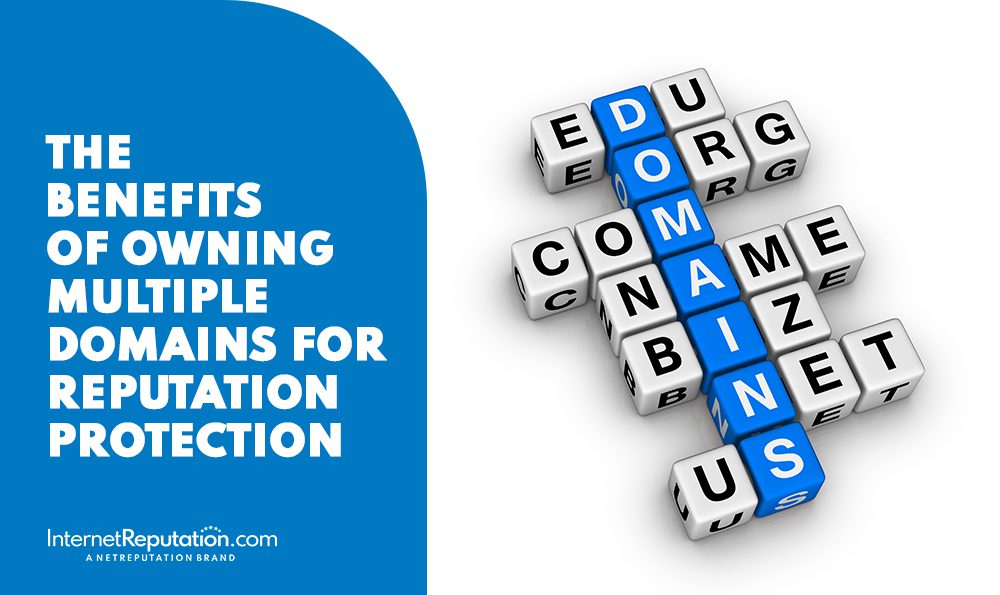Understanding Cultural Nuances in Global Reputation Management

Global reputation management is crucial to maintaining a positive image and perception of your brand or organization on a global scale. It involves managing and shaping public opinion, maintaining credibility, and building relationships with stakeholders across different regions.
Cultural nuances are significant in this process as they shape how people perceive and interpret information. Understanding and navigating these cultural nuances are vital for effective global reputation management.
This article explores the importance of global reputation management and the impact of cultural nuances in reputation management and provides insights into specific cultural nuances in different regions. It offers best practices for adapting to cultural nuances, building relationships, and effectively monitoring and responding to feedback.
What Is Global Reputation Management?
Global Reputation Management refers to the strategies and actions taken by organizations to build and maintain a positive reputation across different cultures. It involves understanding cultural nuances, adapting communication strategies, and addressing issues culturally sensitively.
One example involves a multinational company facing a product recall in a foreign market. The company successfully protected its reputation by acknowledging cultural values and local customs, providing timely information, and offering compensation.
Why is Global Reputation Management Important?
The importance of global reputation management can be understood by considering its impact on a company’s perception worldwide, as well as its business success and credibility. How a company is perceived globally attracts customers, investors, and business partners. A positive global reputation acts as a magnet, while a negative one can result in financial losses and harm the brand image. Effective global reputation management fosters trust, promotes growth, and ensures long-term sustainability.
The Role of Cultural Nuances
Cultural nuances are pivotal in communication style and global reputation management. They are important in how different cultures receive, interpret, and perceive messages. A deep understanding of cultural differences in communication styles, values, and customs is vital for fostering effective relationships and upholding a positive reputation in diverse markets.
How Do Cultural Nuances Impact Global Reputation?
Cultural nuances have a profound impact on global reputation. They can influence whether a company’s actions are perceived positively or negatively in various regions. Understanding these cultural nuances is essential for companies to effectively navigate cultural differences, prevent cultural mishaps, and establish trust with local communities. By doing so, companies can protect and maintain their global reputation.
Understanding Cultural Nuances in Different Regions
Delve into the fascinating world of cultural nuances across different regions as we explore the intricacies that shape the perceptions and practices of global reputation management. Uncover the cultural dimensions and unique flavors of Asia, Europe, North America, Latin America, Africa, and the Middle East as we navigate each sub-section. Gain valuable insights into the diverse customs and traditions that can greatly impact your reputation management strategies in these regions. Prepare to broaden your horizons and adapt to the rich tapestry of global cultures.
Cultural Nuances in Asia
Cultural nuances in Asia play a vital role in managing global reputation. These nuances encompass values like respect for hierarchy, emphasis on collectivism, and the significance of face-saving. It is crucial to comprehend and adapt to these nuances to establish successful business relationships and earn trust. Additionally, responding to feedback in a culturally appropriate manner is essential for maintaining a positive reputation. When engaging in international business in Asia, it is important to be sensitive to Cultural nuances in Asia and modify your approach accordingly.
Cultural Nuances in Europe
In Europe, cultural nuances hold significant importance in managing global reputation. These subtleties greatly vary from country to country, shaping how businesses operate. For instance, in Germany, punctuality is highly regarded as a virtue, while in Italy, emphasis is placed on fostering personal relationships. Understanding and adapting to these cultural nuances is critical in successfully navigating the European market and establishing positive stakeholder relationships.
A real-life example highlights the significance of cultural nuances. When a multinational company expanded its operations into Europe, it discovered that business meetings often commence with casual conversations about family and personal interests in France. By recognizing and accommodating this particular cultural nuance, they could establish a sense of connection and foster trust, ultimately paving the way for successful partnerships.
Cultural Nuances in North America
Cultural Nuances in North America play a pivotal role in managing global reputation. Businesses must comprehend these nuances, including language preferences, social norms, and consumer behavior, to establish effective communication and foster trust with their North American target audience. Adapting marketing campaigns and customer support to enhance brand perception and reputation in the region is crucial to align with these cultural nuances. To achieve this, conducting market research and collaborating with local experts can provide valuable insights into the specific cultural nuances of North America.
Cultural Nuances in Latin America
Latin America is a region known for its rich cultural fabric, and it is essential to acknowledge and navigate the unique cultural nuances that shape the landscape of global reputation management in this part of the world. To effectively operate in Latin America, businesses must not grasp and appreciate these cultural nuances. Language, culture, customs, and values are significant when developing marketing and communication strategies. By adapting and embracing these cultural nuances, businesses can foster strong relationships and cultivate trust with diverse audiences across Latin America.
Cultural Nuances in Africa
Cultural nuances in Africa play a vital role in managing global reputation. It is crucial to comprehend and respect the various local languages, traditions, customs, and communication styles. For instance, in certain African cultures, prioritizing greeting elders first and utilizing formal language while addressing them holds great significance. These cultural factors are essential for businesses to establish a positive African reputation.
Cultural Nuances in the Middle East
When it comes to global reputation management, one must pay attention to the cultural nuances in countries in the Middle East. These cultural nuances play a significant role in shaping the perception and acceptance of a company within the region. Respecting religious customs and adapting communication styles are crucial to understanding and navigating cultural differences when aiming to maintain a positive reputation in the Middle East.
Best Practices for Global Reputation Management
Navigating the intricacies of global reputation management requires a thoughtful and adaptive approach. In this section, we’ll delve into the best practices that can help you effectively manage your reputation on a global scale. From adapting to cultural nuances and building relationships based on trust to monitoring and responding to feedback, we’ll explore the key strategies that will elevate your reputation management game in today’s diverse and interconnected world. Get ready to gain invaluable insights that will shape your brand’s reputation for success.
Adapting to Cultural Nuances
Recognizing cultural contexts and embracing cultural nuances extends beyond mere surface-level adjustments; it necessitates a deep appreciation of the local ethos’s intricacies. This includes language and the subtleties of non-verbal communication, symbolism, and historical context. For instance, colors may hold different connotations in various cultures, and innocuous symbols in one region can carry strong cultural or religious significance in another.
In addition to adapting communication styles and marketing strategies, businesses should consider tailoring their product or service offerings to suit local preferences and the needs of the global market. A one-size-fits-all approach may not resonate with diverse global audiences, so customization or localization can be instrumental in gaining a competitive edge.
Moreover, demonstrating a genuine commitment to the culture and community in which a business operates can go a long way in building a positive reputation. This might involve supporting local causes, participating in cultural events, or engaging in corporate social responsibility initiatives that align with the values of the local culture and population.
Adapting to cultural nuances is not merely a strategy for avoiding missteps but a means of thriving in a globalized world. It’s about going beyond the superficial and immersing oneself in the cultural tapestry of each target market, forging meaningful connections, and ultimately building a global reputation grounded in authenticity and respect.
Building Relationships and Trust
Building relationships and trust is crucial for effective global reputation management. Here are some key strategies:
- Strong Communication: Foster open and transparent communication with stakeholders to enhance trust.
- Mutual Benefits: Prioritize the interests of all parties involved, creating mutually beneficial partnerships.
- Consistency: Build reliability and credibility by maintaining consistent actions and messages.
- Deliver on Promises: Establish trust, follow through on commitments, and provide exceptional quality.
- Understanding Cultural Context: Respect cultural differences and adapt your approach to establish trust across diverse regions.
Monitoring and Responding to Feedback
Staying attuned to customer and stakeholder feedback is paramount for any business striving for success. To achieve this, it’s essential to establish a robust feedback management system that encompasses various channels, including online reviews, surveys, and social media platforms. This system should collect feedback and categorize and analyze it meticulously to unearth valuable insights, discern recurring trends, and pinpoint areas ripe for enhancement.
Equally crucial is the timeliness and professionalism with which feedback is addressed. Swift responses demonstrate a commitment to customer satisfaction, as concerns are addressed promptly and viable solutions are provided, fostering a sense of trust and reliability.
Moreover, positive feedback should not be overlooked or taken for granted. It represents an opportunity for acknowledgment, relationship-building, and loyalty cultivation. Expressing genuine gratitude for commendatory feedback can solidify the customer’s positive perception of the brand and encourage them to become loyal advocates.
To complete the feedback cycle, it’s wise to implement a follow-up mechanism. After addressing concerns and implementing improvements, collecting additional feedback can serve as a litmus test for customer satisfaction. This iterative process ensures that customer needs are continually met and demonstrates a commitment to continuous improvement, which can set a business apart in today’s competitive marketplace.
In essence, monitoring, analyzing, and responding to feedback effectively isn’t just a best practice—it’s essential to maintaining a thriving and customer-centric business model.
Navigating The Complex Terrain of International Business
Maintaining a respectful and harmonious business relationship often involves observing and adhering to cultural norms throughout the interaction. In Japan, for instance, punctuality is highly valued, and arriving late to a meeting can be seen as disrespectful. Additionally, “saving face” is crucial in many Asian cultures, including Japan.
This means avoiding confrontation and criticism in public settings, which can lead to embarrassment and damage relationships. Understanding these subtle cultural intricacies and adapting your behavior can foster mutual understanding of other cultures and facilitate smoother negotiations.
Moreover, effective cross-cultural communication extends beyond the spoken word. Non-verbal cues such as body language, eye contact, and even the tone of voice can convey different meanings in various cultures.
In some cultures, direct eye contact is seen as a sign of confidence and honesty; in others, it might be interpreted as confrontational or disrespectful. Learning to decode and appropriately respond to these non-verbal signals is essential for successful international business interactions.
In conclusion, cultural sensitivity and adaptability are indispensable for navigating the complex international business landscape. Business professionals can bridge gaps, build trust, and foster productive, enduring global partnerships by using cultural awareness and recognizing and respecting cultural nuances.



